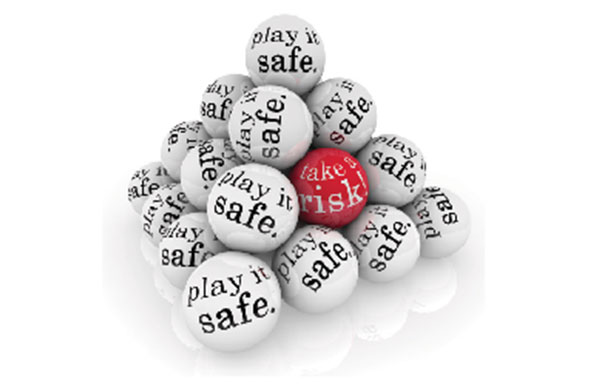 Did your high school aged child have an active Individualized Education Plan (IEP) in elementary school? Odds are that he or she stopped receiving services from the New York City Department of Education (NYC-DOE) close to the time that high school began. The High School Academic Resource Center (HSARC), a project of Teach NYS, Orthodox Union and the Sephardic Community Federation, is here to guide you in reactivating your teenager’s file so that support will be available during these demanding high school years.
Did your high school aged child have an active Individualized Education Plan (IEP) in elementary school? Odds are that he or she stopped receiving services from the New York City Department of Education (NYC-DOE) close to the time that high school began. The High School Academic Resource Center (HSARC), a project of Teach NYS, Orthodox Union and the Sephardic Community Federation, is here to guide you in reactivating your teenager’s file so that support will be available during these demanding high school years.
Unlike other states, here in New York State, children attending private schools are eligible to receive the same set of services as their public school counterparts. However, based on the student utilization data that we received from the New DOE, only a tiny number of high school students attending yeshivahs are receiving DOE services. For grades K through 8, the number of yeshivah students receiving services is comparable to public school districts at around 10%. However, for yeshivah high schools, the number of students receiving services drops to less than 3%. This is a very unfortunate trend as the high school years are a time when IEP based services are greatly needed to ensure academic success and prepare for life after graduation.
Jewish high school students, who have been issued an IEP, stand to benefit greatly from the range of supports that are available to them under the law. It is reasonable to expect that children with learning disabilities will continue to need support as they progress through school. Successful adults with dyslexia, ADHD and other learning differences will testify that they still struggle with the impediments to their learning and functioning that they experienced as children. Their success is rooted in their determination to employ learning strategies that strengthen their strengths and bypass their weaknesses.
Imagine how deeply frustrating it must be for high school students to learn these compensatory strategies on their own—without any outside professional help. They are struggling in silence or acting out as they buckle under the demands of an intensified dual curriculum. This need not be the case when help is available for the asking. Parents do not need to tear out their hair in frustration or pay out of pocket for private tutors. Their child is entitled to services and our Center is here to make sure that these services will be effective.
 Teach NYS, with support from the Sephardic Community Federation, is championing the cause of this under-served population of struggling learners. Through the establishment of a High School Academic Resource Center, we wish to assist parents in accessing services for their under-performing children. We aim to provide information to concerned parents who will likely be both relieved and empowered to learn about the unique array of services that are available to the yeshivah high school student with an IEP.
Teach NYS, with support from the Sephardic Community Federation, is championing the cause of this under-served population of struggling learners. Through the establishment of a High School Academic Resource Center, we wish to assist parents in accessing services for their under-performing children. We aim to provide information to concerned parents who will likely be both relieved and empowered to learn about the unique array of services that are available to the yeshivah high school student with an IEP.
The DOE addresses the developmental and academic needs of high school aged special education students by providing enhanced academic support services—explicit instruction in the fundamental executive functioning skills that are critical for a high school student.
Academic Support Services: Based on the recommendations in the IEP, your child can be offered help so that they can improve in one or more of the following skill sets: organization, time management, note taking, study, test taking strategies, social skills and self-advocacy. All of these support services are embedded in the ongoing instruction offered by a P3 provider.
Transition Planning Services: Guidance that is tailored both to the affinities and individual needs of the special education student can be provided to plan effectively for the passage from high school to the immediate chapter beyond. When properly stipulated in an IEP, transitional planning counseling can encompass a broad range of services that are designed to set a soon to be graduate up for success in college and/or in the workplace.
Our IEP students are entitled to receive assistance in learning how to navigate the college admissions process and how to advocate for themselves with regard to accommodations and modifications once they have been accepted into a post-secondary school program. Transition Services can also provide support and instruction in a host of other life readiness skills such as resume writing, interviewing and financial literacy training.
The High School Academic Resource Center invites administrators of Jewish High Schools to partner with us in encouraging parents to utilize the services that are available. Not surprisingly, our fledgling investigation has demonstrated that in schools where administrators invest deeply in the future of their most vulnerable students, those students are positioned most markedly for success.
We would like to remind parents of struggling students that it is not too late to enlist support. There are students who begin the process of evaluation in 9th or 10th grade and access the services for the remainder of their time in high school. It is even easier to reengage in the DOE system if a child had an IEP in elementary or middle school.
An annual review conducted at the start of 8th grade would likely render the student eligible for continued services as they enter high school. We recognize that advocating for a struggling student (and living with a teenager) is challenging for many parents and we invite anyone who needs help to reach out to me. I am ready to offer my ear and guidance in navigating your child through the next phase of his academic career. Please call me at (212) 566-5400 X 13.
Meryl Silver holds a Master’s Degree in Special Education from Bank Street College. She has taught in both general education and special education yeshivah settings for more than 10 years. She is currently coordinating the Teach NYS High School Academic Resource Center project for the Sephardic Community Federation.



